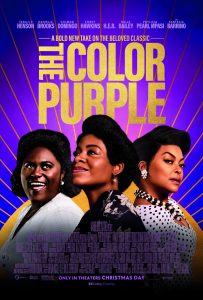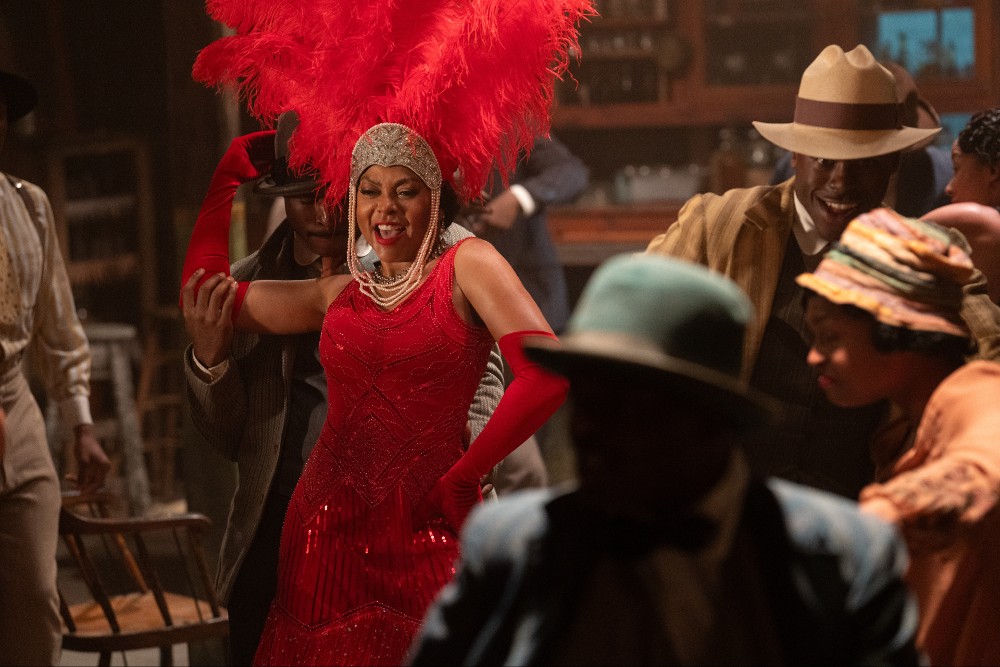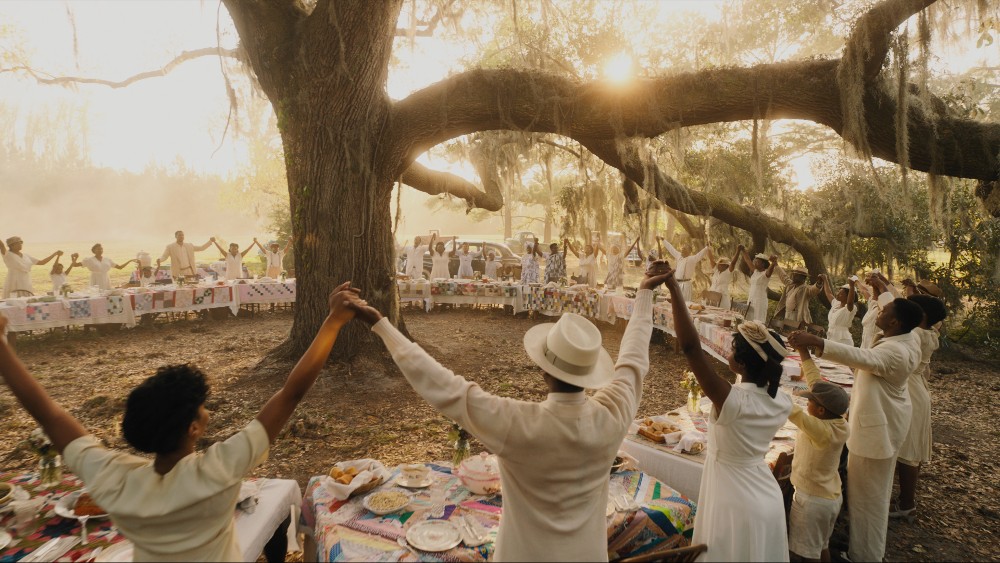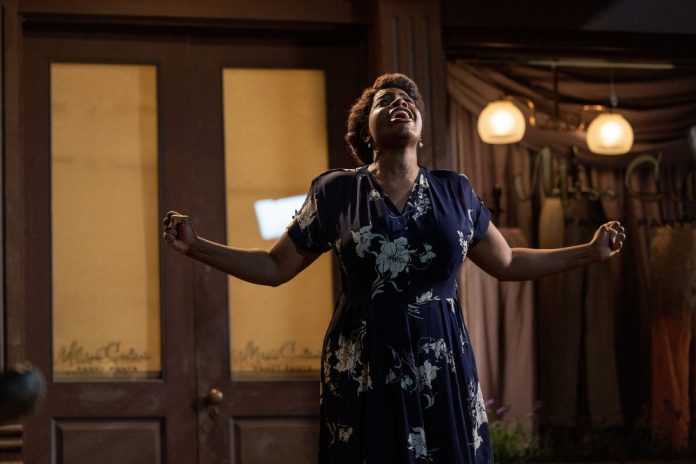At a Q&A following the screening of the new, musical adaptation of The Color Purple, star Taraji P. Henson (who plays singer Shug Avery), noted that the novel of the same name is now like Shakespeare, which is subject to constant reimagining.
Of course, Henson is correct that Alice Walker’s gutwrenching, epistolary story of the sufferings of Celie Harris-Johnson – in this version, portrayed by Fantasia Barrino – is a beloved, renowned, and timeless classic like the tragicomedies of the Bard of Avon. She is also right that a work’s greatness lies, at least in part, in its constant adaptability. Also implicit in this comparison, however, is the necessary conclusion that not all revisions of ageless stories are acceptable, or even worth telling. That, I am afraid, is the Shakespearean fate that befalls this 2023 reimagining, a musical that, in retelling the story in a more upbeat manner, inadvertently erases the soul of the drama Walker imagined in her 1982 book.
 To the uninitiated, The Color Purple tells the lifelong story of Celie, her constant sexual and emotional abuse at the hands of her father and later her husband “Mister” Johnson (a touching Colman Domingo), and her tragic separation from her beloved sister Nettie (Ciara) at a very young age. The story takes place in the American South and spans almost the entire 20th Century, with Celie encountering all sorts of bleak humiliation and suffering, as well as witnessing it, most prominently in the suffering by Sofia (Danielle Brooks), who marries Mister’s son from a prior marriage, Harpo (Corey Hawkins).
To the uninitiated, The Color Purple tells the lifelong story of Celie, her constant sexual and emotional abuse at the hands of her father and later her husband “Mister” Johnson (a touching Colman Domingo), and her tragic separation from her beloved sister Nettie (Ciara) at a very young age. The story takes place in the American South and spans almost the entire 20th Century, with Celie encountering all sorts of bleak humiliation and suffering, as well as witnessing it, most prominently in the suffering by Sofia (Danielle Brooks), who marries Mister’s son from a prior marriage, Harpo (Corey Hawkins).
For better or for worse, The Color Purple is a story about terrible suffering at the hands of all sorts of abusers of African American women. In the first major film adaptation, the 1985 film directed by Steven Spielberg, Whoopi Goldberg plays the famously ugly and unattractive Celie, while Oprah stars as the long-suffering, violently abused Sofia. Spielberg and Oprah produce this version, and hand it to capable director Blitz Bazawule (Beyoncé‘s Black is King). The problem for this version stems from the source from which it is really adapted—the musical version of the story from the 2000s.
The Broadway musical The Color Purple was almost an entirely different tale. It was mostly about the songs, the choreography, and the costumes, with Walker’s tragic tale as an uncomfortable and almost irrelevant background. Back on the big screen, however, this Warner Bros. version cannot shake off the constraints of the original. The Color Purple, as much as it is about hope and empowerment in the end, is about suffering, relentless, and unapologetic. By the time the epic running time draws to a close, you should feel emotionally connected to Celie, as Whoopi did, and tears should whoosh into your eyes as her moment of absolution finally comes. In this version, however, there’s too much dance and too much joy for the redemption to feel real once it arrives.

To be sure, not every story—about African American women, or otherwise—has to be about suffering, or as cruel and perhaps as brutal as Spielberg’s original. Walker’s version, of course, was just exactly that yet, to Taraji P. Henson’s point, future artists may adapt classics as they see fit. The problem is that not all adaptations work. West Side Story adapted Romeo & Juliet in its own cathartic and creative way, while maintaining the essence of the story—that of tragic, ill-fated love. Other adaptations, such as many film version of The Tempest, Macbeth, or A Midsummer’s Night Dream, have not been anywhere near as successful. The Color Purple, 2023 version is, I am afraid, going to live in the pantheon of the latter and not the former.
None of this is to say that the latest version is not oozing with talent; it is. Henson in particular is hammy as the eccentric, self-assured Shug, who ultimately rescues Celie from her troubles. Though nowhere near as stunning as Oprah, Danielle Brooks acquits herself well enough as the quieter version of Sofia. Fantasia, for her part, nails the singing numbers, but the fact that this is her first big screen role unfortunately shows. No, the problem is not the lack of talent, but the lack of an emotional core around which their various auras can logically gravitate.

A large part of the problem manifests directly in Marcus Gradley’s script. It is not at all easy to adapt a novel into a cohesive movie that spans minor episodes along years, perhaps decades of a life, and then some. If the tone is not pinpoint precise, the various pieces can feel disjointed and crumble apart quickly. It does not matter how talented the stars at the core of the story may be, just ask Meryl Streep and the deeply flawed adaptation of the stunningly perfect novel The House of the Spirits. Here, the lack of more sustained emotional beats makes each number feel as just that—a musical number that entertains those looking at live singing and dancing on a theater stage, but that cannot hang together in the different narrative context of cinema.
Will The Color Purple do well at the box office or awards season? Perhaps. It is impossible to fully deny the effort that goes into adapting a novel of this sort, a musical of this nature. The production values are solid and Warner Bros. even threw in an original song by Halley Bailey (a young Celie) for good measure, but the original The Color Purple, while garnering a stunning eleven Oscar nominations, ultimately proved perhaps too sad and bleak, walking away empty-handed. This version, at least for this critic, is too much in the opposite direction, too colorful to bear any real resemblance to the source material that spawned it. A similar fate as Spielberg’s 1985 movie in the awards race is not at all out of the question.
Talent: B-
Story: C-
Crafts: B
Awards Potential: Best Picture, Best Supporting Actress (Brooks or Henson), Best Original Song (“Keep it Movin”) and various below the line possibilities
Box Office Potential: Low – musicals have fared poorly
Renewability: None
Overall Score: C+
The Color Purple will be released by Warner Bros. on December 25, 2023.
Studio: Warner Bros. Pictures
Principal Cast: Fantasia Barrino, Taraji P. Henson, Danielle Brooks, Colman Domingo, Corey Hawkins, H.E.R., Ciara, Aunjanue Ellis, Louis Gossett Jr.
Director: Blitz Bazawule
Screenwriter: Marcus Gradley
Producers: Oprah Winfrey, Steven Spielberg
DP: Dan Lautsen
Production Design: Paul Denham Austerberry
Costume Design: Francine Jamison-Tanchuck
Editor: Jon Poll
Score: Kris Bowers
Twitter: @jdonbirnam
Instagram: @awards_predix



